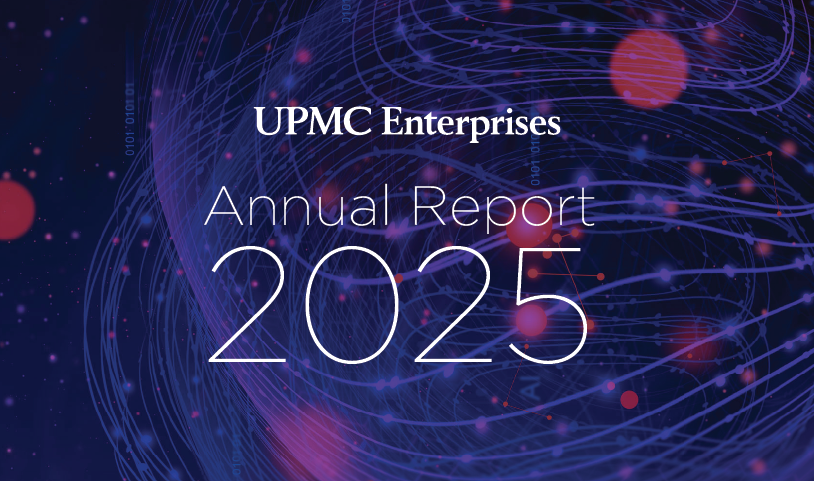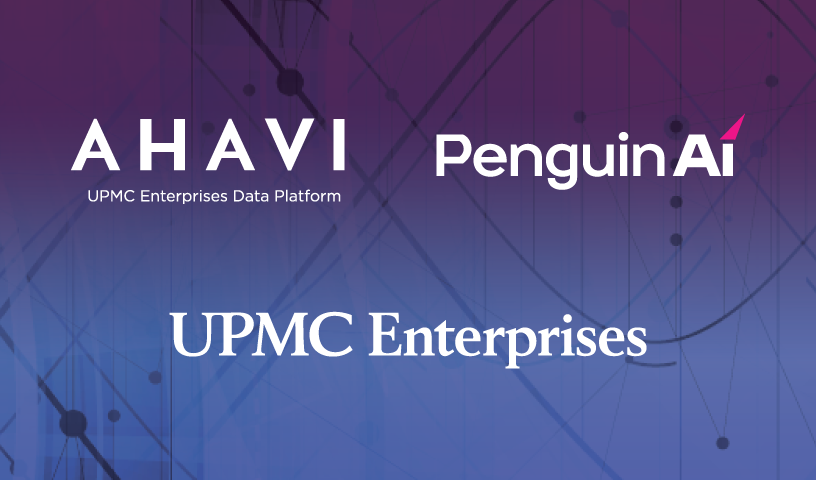
Jun 10, 2024
Cardiology: Unmet Needs and Opportunities for Investment
By Aishwarya Shivkumar, Sr. Associate, Strategic Product Management, and Mary Beth Navarra-Sirio, Vice President, Product Management and Market Development
Despite being the leading cause of death in the United States, with high incidence and glaring gaps in timely diagnosis, precision treatment, and patient engagement, cardiovascular disease is still a vastly underserved market.
At UPMC Enterprises, we believe the space is ripe for disruption and are actively looking for transformative solutions to improve patient and provider experience. There are opportunities for digital solutions to reduce friction points and incentivize timely and financially viable models of care.
Below are our thoughts on the investment opportunities, including why cardiology is an attractive space for disruption, how we are approaching potential investments, and background on Ultromics, a company we recently partnered with to bring AI-based solutions to help with the diagnosis of heart failure.
Why is cardiology so hot right now?
| Demographics, large addressable market, and cost associated with it. | 40% of the entire population has some form of cardiovascular disease (CD). Of those age 60 and older, seven out of 10 have CD. And by age 80, it’s nine out of 10. Obesity, sedentary lifestyles, and hypertension are all contributing factors for the growth in CD conditions. Heart conditions cost approximately $555 billion a year. |
| Cost containment measures by Centers for Medicare and Medicaid Services (CMS). | CMS is implementing cost containment measures to move volumes to ambulatory surgery centers (ASC’s) as well as reduce hospitalization and drug-related costs associated with heart disease. It is estimated that approximately 35% of cardiovascular volume will migrate to ASC’s. |
| Increased private equity (PE) activity around consolidation. | There has been increased PE activity around consolidation of cardiology practices/ASC’s and putting new business models and profitability targets into place. |
| There is white space as it relates to vertically integrated, tech-enabled solutions serving cardiology patients. | Diabetes and kidney care offerings in the market had similar heightened interest a few years ago with a focus on increasing personalization of care, improving quality, and lowering total cost of care. |
| Heightened pharmaceutical and medical device interest and investment. | Novel drugs and medical devices are rapidly coming to market to help treat patients. |
| Acceptance of AI and automation by cardiology similar to the field of radiology. | Cardiologists are more amenable to testing and utilizing automation and AI to assist with throughput and quality as aids for prevention, diagnosis, and treatment. Solutions are showing deep market penetration and payer reimbursement. |
What bets do we think are most attractive in the cardiology space?
AI/Diagnostics to identify the right patients: Due to the number of possible stakeholders involved in diagnosing complex cardiovascular conditions, including PCP’s, cardiologists, and sub-specialists, as well as inpatient and outpatient sites of diagnosis, diagnosing these very expensive conditions lacks standardization. In addition, there are high rates of indeterminate diagnoses for some complex subtypes of heart failure and long timelines for diagnosing patients. Leveraging non-invasive technology can help standardize and stratify patients more effectively at a lower cost and broaden the funnel of potential patients.
Value Based Care enabling solutions tailored for cardiology: Once the right diagnosis has been made, solutions enabling providers to take meaningful action and halt disease progression require a broad toolkit. There is opportunity for solutions that combine technology and services to reduce the total cost of care, including risk stratification, patient engagement, precision medicine, remote patient monitoring, medication titrations, and clinical services.
Platform and ecosystem plays: Providers are looking for platform solutions to integrate into their workflow given the severe fatigue with point solutions they are experiencing. This ties to ensuring seamless workflow integration with existing systems requiring minimal change management.
Business model innovation to meet providers where they are as it relates to risk tolerance: Given the razor thin margins on the hospital end, finding novel monetization strategies to bring innovative technology to the bedside is becoming key to gaining market share. We’re seeing risk-based models, technologies leveraging New Technology Add-On Payments, and finding reimbursement models that enable providers to share in the upside garnering the most traction.
Condition specific: We’re looking for solutions focused on high cost/high incidence conditions within cardiology. The most pressing condition is heart failure due to the cost burden, morbidity, and mortality associated with it. These will likely show the highest return on investment for prospective customers in a short span of time. More specifically, subtypes of heart failure, such as Heart Failure with Preserved Ejection Fraction (HFpEF), and phenocopies such as amyloidosis and hypertrophic cardiomyopathy are of interest to us.
Partnering with Ultromics
UPMC Enterprises recently entered the cardiology space with an investment in Ultromics, a company that uses AI-based solutions to help diagnose specific phenotypes of heart failure to provide life-saving treatments to patients earlier.
Ultromics is launching its diagnostic platform with a focus on HFpEF, a complex form of heart failure that represents the largest unmet need in cardiac disease. Using a standard echocardiogram, Ultromics applies the power of AI to accelerate diagnosis and treatment through a scientifically validated solution.
Identifying patients early and putting them on the right treatment pathway assists with promoting the right incentives across the payer, provider, pharma, and patient value chain. We are eager to see what the future holds for Ultromics and are confident that their solutions will continue to make a positive impact on both patients and clinicians. For a deep dive on Ultromics and the clinical application of AI-based echocardiography diagnostics, check out this article from Founder and CEO, Dr. Ross Upton.
To learn more about how our Digital Solutions team works with startups to accelerate success, browse our website.


